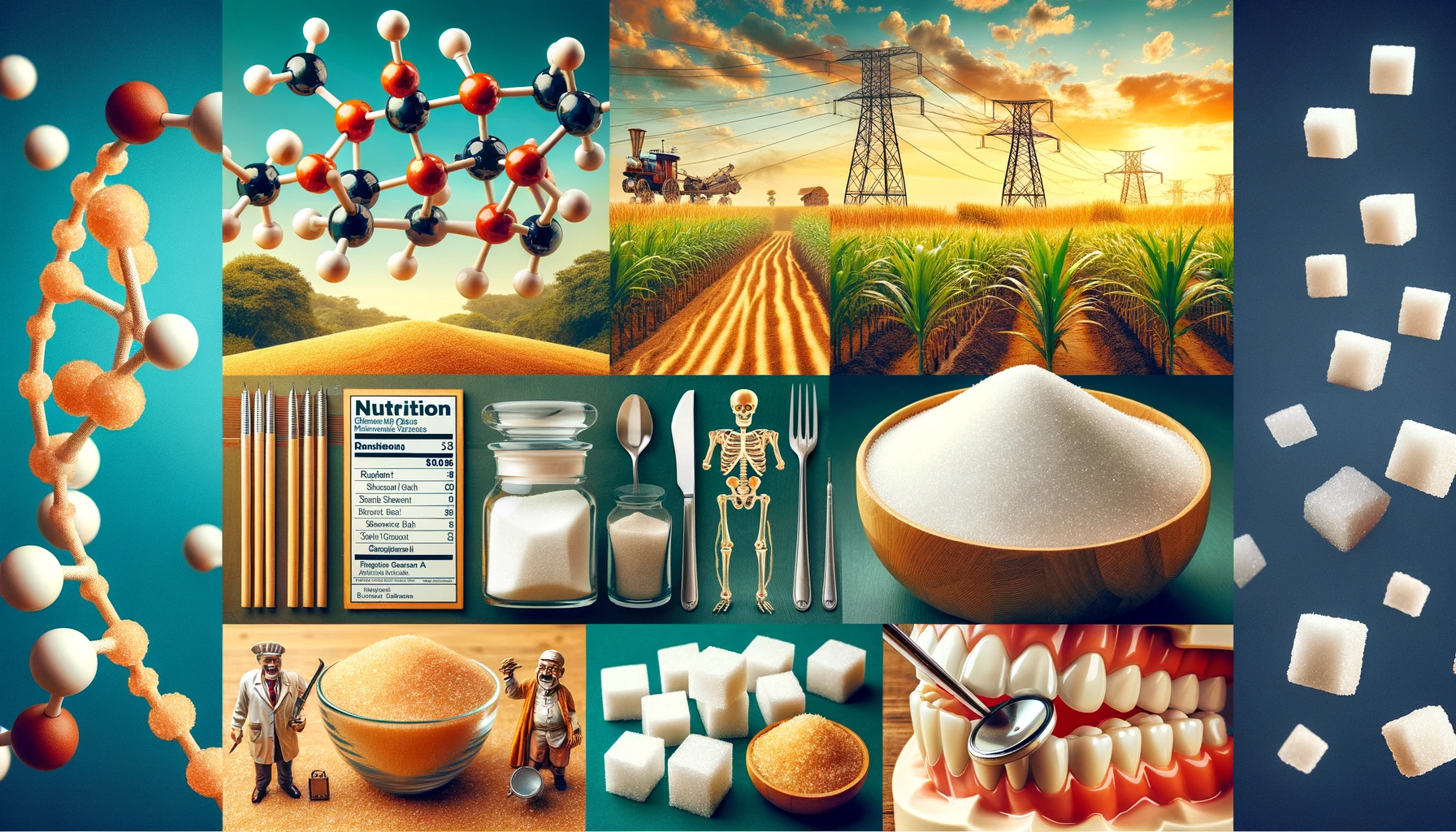Introduction
In the modern world, obesity has become a growing health concern, with millions of individuals battling excess weight. While there are various factors contributing to this epidemic, one factor that has gained significant attention is sugar. This article explores the intricate connection between sugar and obesity, delving into the role of different sugar-containing ingredients in our daily diet.
Understanding the Types of Sugar
Sugar is not a single entity but a family of sweet-tasting substances. To comprehend its impact on obesity, we must first understand the various types of sugar:
- Natural Sugars
- Natural sugars occur naturally in foods such as fruits, vegetables, and dairy products. They are accompanied by essential nutrients, fiber, and antioxidants, making them a healthier choice.
- Added Sugars
- Added sugars are incorporated into processed foods and beverages during production. They contribute to empty calories, devoid of any nutritional value, and are associated with weight gain.
The Role of High-Fructose Corn Syrup (HFCS)
Among the various added sugars, High-Fructose Corn Syrup (HFCS) stands out due to its ubiquitous presence in processed foods and beverages. Here’s how HFCS is connected to obesity:
- Metabolic Effects
- HFCS is high in fructose, which can overload the liver and lead to the accumulation of fat. This can contribute to obesity and related health issues.
- Increased Caloric Intake
- Beverages sweetened with HFCS, such as soda, provide extra calories without inducing a feeling of fullness, leading to overconsumption of calories.
- Insulin Resistance
- Consumption of HFCS has been linked to insulin resistance, which can lead to weight gain and obesity over time.
The Hidden Sugar in Processed Foods
Besides HFCS, there are numerous other sugar-containing ingredients hidden in processed foods. Let’s explore some of them:
- High Sugar Cereals
- Breakfast cereals often contain added sugars, even those marketed as “healthy.” Consuming these regularly can lead to excessive sugar intake.
- Sweetened Yogurts
- Yogurts with added fruit or flavorings can be laden with sugar. Opting for plain yogurt and adding fresh fruits can be a healthier choice.
- Condiments and Sauces
- Ketchup, barbecue sauce, and salad dressings often contain added sugars. Check labels and choose sugar-free options.
- Baked Goods
- Cookies, cakes, and pastries are notorious for their sugar content. Limiting their consumption is essential for weight management.
- Sugary Snacks
- Candy bars, energy bars, and sugary snacks can contribute significantly to daily sugar intake. Opt for whole foods like nuts and fruits.
The Impact of Sugar on Hormones
Sugar consumption can disrupt hormonal balance in the body, which plays a crucial role in regulating appetite and metabolism. Key hormones affected include:
- Insulin
- Excessive sugar intake can lead to insulin spikes, promoting fat storage and weight gain.
- Leptin
- High sugar diets can lead to leptin resistance, making it difficult for the body to sense fullness, leading to overeating.
- Ghrelin
- Sugar can increase ghrelin levels, the hunger hormone, leading to increased appetite and cravings.
Conclusion
The connection between sugar and obesity is undeniable. By understanding the types of sugar, recognizing hidden sugar in processed foods, and acknowledging its impact on hormones and metabolism, individuals can make informed choices to reduce sugar consumption and mitigate the risk of obesity. A balanced diet, rich in whole foods and low in added sugars, remains the cornerstone of a healthy lifestyle.
